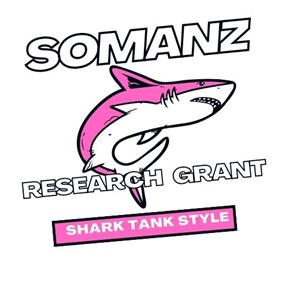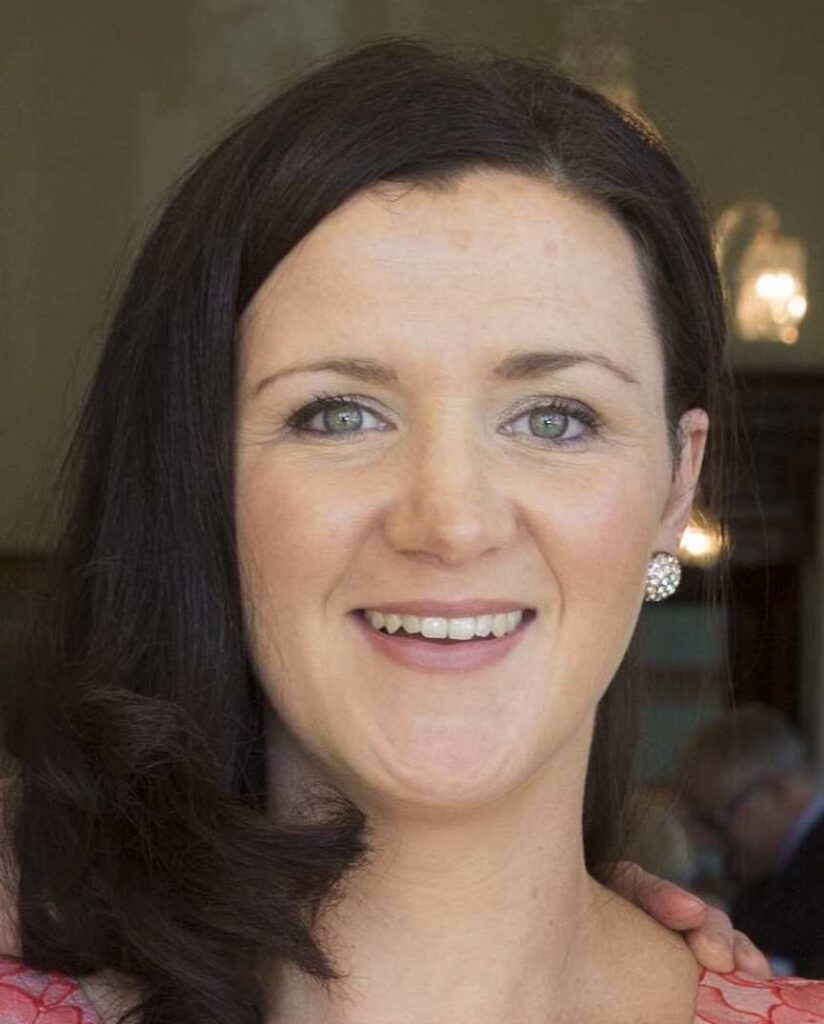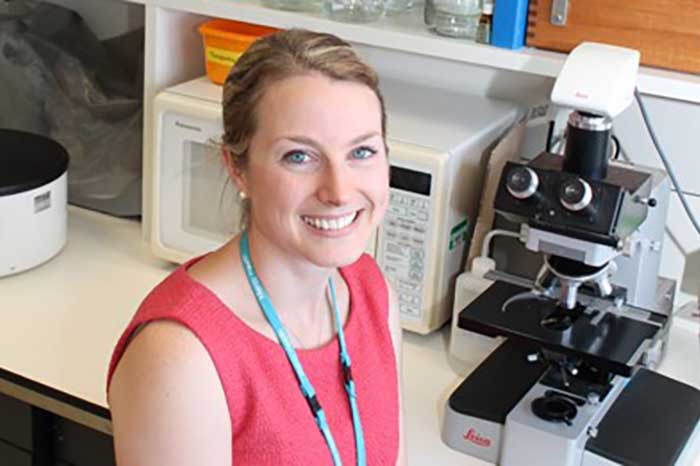Research Grants
SOMANZ Research Grant

The SOMANZ Research Grant is designed to encourage research in the field of Obstetric Medicine. It is funded directly by the Society and is a single award of A$10,000.
The research grant will prioritise applications from early career members ie.no more than 5 years beyond most recent clinical or research qualification such as FRACP, FRANZCOG, PhD.
The grant is designed to fund either clinical or basic science research projects in the field of Obstetric Medicine, including pilot studies. Ideally the project should be completed within the 12 months following receipt of the award. Successful applicants should aim to present their research findings at an annual SOMANZ meeting within 3 years of receiving the award. These grants do not fund administrative overheads and on-costs by institutions.
SOMANZ has listened to your feedback regarding transparency of grants, and more interactive sessions at the ASM.
Three finalists will be chosen by the SOMANZ Council to present their Research Grant application “Pitch” at a Shark Tank style session at the ASM. The Shark Tank panel will consist of experts who will ask questions on the research. The winner will be determined based on audience votes from within the session. This is aimed to be an entertaining and supportive session at the ASM without any compromise of scientific integrity. It will also be an excellent opportunity for finalists to network and foster collaboration.
Applications will be judged by the SOMANZ Council to attain Finalist Status according to the following criteria:
- Applicant must be a financial member of SOMANZ at the time of application
- Applicants or a member of their team must be available to attend the ASM in Adelaide and present their Pitch in person at the Shark Tank session
- Significance / Relevance of the Research to Obstetric Medicine
- Scientific Merit
- Track Record / Potential of the applicant
The overall winner will be judged by the audience vote, in concert with the SOMANZ grant review committee, following the Shark Tank session at the ASM.
Applicants must complete the application form and submit electronically to the SOMANZ Secretariat via Email: admin@somanz.org
The grant application should be saved as a PDF or MSWord file and named using your surname and first initial and emailed to admin@somanz.org by the closing date.
There will not be a Research Grant offered in 2024.
The SOMANZ Council reserve the right not to offer a grant if a suitable application is not received.
Support for Grant Applications to External Organisations
In most cases, SOMANZ Council is unable to provide endorsement or letters of support for research grant applications. However, if there is a compelling and genuine collaboration that is in keeping with the aims and goals of SOMANZ, then Council is open to discussion and involvement in project development with at least three months’ notice prior to grant submission.

2023 SOMANZ Research Grant Recipient – Dr Natasha de Alwis – Mercy Hospital for Women, University of Melbourne
‘Investigating the potential of complement blockade to treat preeclampsia-induced vascular dysfunction’
Preeclampsia is a serious pregnancy complication taking the lives of over half a million babies and 70,000 mothers every year. Unfortunately, there is currently no cure. Our team’s goal is to develop new ways to treat preeclampsia, getting more babies and birthing individuals safely home.
Preeclampsia is associated with excessive inflammation of the blood vessels, contributing to high blood pressure and impaired blood supply to the major organs. In this project, I will investigate whether targeting the immune complement system might be an effective way to treat the vascular inflammation and dysfunction that is central to preeclampsia. I will use eculizumab, a biologic monoclonal antibody, to inhibit the complement effector molecule ‘C5’, and investigate whether this can treat disease in our laboratory models.
If successful, this data will encourage further study into eculizumab and complement inhibition for the treatment of preeclampsia, and support progression of this drug into clinical trials.

2022 SOMANZ Research Grant Recipient – Dr Theepika Rajkumar – South Western Sydney LHD and Western Sydney University
“REMOTE blood pressure monitoring in high-risk pregnant women – a randomised controlled trial (REMOTE CONTROL Trial)”.
High blood pressure is one of the most common complications of pregnancy, affecting up to 10% of pregnant women. It is associated with poor outcomes for both the mother and baby, potentially causing seizures, stroke, kidney and liver dysfunction, stillbirth and long-term cardiovascular events. Monitoring, early recognition and treatment are key to reducing severe complications and mortality.
Pregnant women who are at higher risk of developing hypertension in pregnancy require more frequent clinic appointments for close blood pressure monitoring. The REMOTE CONTROL trial will evaluate the use of a novel customised mobile health platform to remotely monitor blood pressure in these women, assessing if this approach is as safe as conventional clinic blood pressure monitoring. By reducing travel costs, clinic visits and waiting times, we hypothesise that remote monitoring will improve patient compliance and delivery of care, particularly to vulnerable populations in rural and remote communities.

2021 SOMANZ Research Grant Recipient – Professor Natalie Hannan – Mercy Hospital for Women, Victoria
“New horizons in the treatment of preeclampsia: TNF-α inhibition with biologic therapies.“
Preeclampsia is a serious pregnancy complication. The stressed preeclamptic placenta releases excessive toxic proinflammatory factors, especially tumour necrosis factora (TNFa), into maternal circulation, causing damage to maternal blood vessels/organs. Currently no effective treatment exists.
Here, we aim to demonstrate that neutralising TNFa using innovative biologic (antibody) drugs, etanercept and certolizumab (used for inflammatory diseases in pregnancy) will reduce preeclampsia disease processes. We will test their effectiveness in advanced models of preeclampsia and demonstrate whether they decrease injury to the placenta and maternal blood vessels.
If successful, offers a breakthrough in the management of preeclampsia, improving outcomes for both mothers and babies.

2019 SOMANZ Research Grant Recipient – Dr Vanessa Murphy – Hunter Medical Research Institute, Newcastle NSW
“Blood biomarker predictors of exacerbations of asthma during pregnancy, and their relationship to adverse perinatal outcomes.”
Asthma is the most common chronic disease to complicated pregnancy, affecting 13% of pregnancies in Australia. Pregnant women with asthma are at increased risk of a range of poor perinatal outcomes, including preterm birth, pre-eclampsia and gestational diabetes. Exacerbations of asthma are common, and contribute to these increased risks. Currently, there is no way to predict women at risk of exacerbations in pregnancy. This project will use a novel method of counting inflammatory genes in the blood of pregnant women with asthma, and determining whether these genes can predict the risk of asthma exacerbations and/or poor outcomes during pregnancy or at birth.

2018 SOMANZ Research Grant Recipient – Professor William (Bill) Hague – Robinson Research Institute, University Of Adelaide
“Long term outcomes of children born to mothers with intrahepatic cholestasis of pregnancy.”
There are limited data on long-term outcomes for children of mothers experiencing intrahepatic cholestasis of pregnancy. Serum bile acids, the marker of this condition, are potent modifiers of metabolic, endocrine and neurological function, impacting on triglyceride and glucose metabolism, and liver growth. They can cross the placenta. We will use data linkage to compare growth and development of such children from women managed during their pregnancies between 2001 and 2010 in the public clinics of the Women’s and Children’s and the Lyell McEwin Hospitals, with those from all other women birthing at these hospitals during this period.

2016 SOMANZ Research Grant Recipient – Dr Fiona Brownfoot – University Of Melbourne
“Safety and pharmacokinetics of sulfasalazine in patients with preterm preeclampsia.”
Preeclampsia is a serious complication affecting 5-8% of pregnancies. Currently there is no medical treatment and the only way to stop disease progression is to deliver the mother. At early gestations this leads to high rates of death and cerebral palsy in babies born too early.
Excitingly, we have found a medication, sulfasalazine, may be able to reverse key features of preeclampsia in laboratory studies using human tissues. We hope to progress this concept and treat women with preeclampsia with sulfasalazine. We will determine the amount of medication in patients and secondly assess its effects on the preeclampsia disease process.

2014 SOMANZ Research Grant Recipient – Dr Katie Powell Kolling Institute Of Medical Research, NSW
“Investigating the β-Isoform of the Thromboxane A2 Receptor (TPβ) and its potential use as a predictive biomarker in Pre-eclampsia.”
At present there is no diagnostic test to predict whether pregnant women will develop pre-eclampsia at some stage throughout their pregnancy. We have recently discovered a significant, human specific factor that may explain the origins of pre-eclampsia. This companion study seeks to determine the diagnostic value in assessing expression of this factor, TRβ, in early pregnancy for the purpose of detecting women at risk of developing pre-eclampsia. We will compare the levels of TRb transcripts in third trimester serum from women with normal pregnancies and those with clinically diagnosed pre-eclampsia. Subsequently, we will assess TRβ transcript expression in first trimester serum from pregnancies of known outcome to determine whether monitoring TRβ early in pregnancy improves the sensitivity and/or accuracy of predictive algorithms used to assess risk of pre-eclampsia in pregnant populations.
2012 SOMANZ Research Grant Recipient – Dr Antonia Shand
“Inflammatory bowel disease: prevalence, trends and pregnancy outcomes in New South Wales”.
Inflammatory bowel diseases (IBD) (including Crohn’s disease and ulcerative colitis) are chronic inflammatory diseases of the gastrointestinal tract that affect women of childbearing age. Currently among women of reproductive age in Australia, the population prevalence IBDB during pregnancy and the associated pregnancy outcomes are unknown. We will use linked population date to access the prevalence and outcomes of IBD in pregnancy.
See publication from this project in BJOG – Click here for PDF Version.
